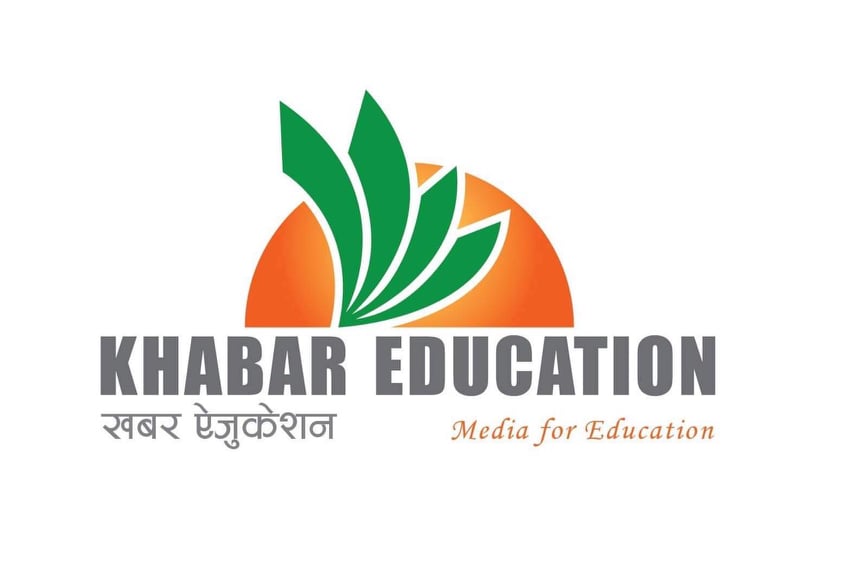Kathmandu/20 February – A paradigm shift in education refers to a significant change in the way education is approached, understood, and practiced. It involves a transformative departure from traditional methods to new, innovative models of teaching and learning including the adoption of new technologies and educational philosophies. It aims to address the evolving needs of students, prepare them for the demands of the 21st century. It often seeks to promote learner-centered approaches, critical thinking, problem-solving skills, creativity, collaboration, and adaptability. Some key elements of a paradigm shift in education include the shift from teacher-centered to learner-centered approaches, integration of technology, focus on skills and competencies, collaboration and project-based learning, individual and personalized learning, blended learning, continuous learning, and lifelong learning (Vander & Schneider, 2017). Based on any educational envisioning of any institution various educational paradigms have emerged such as traditional paradigm, constructivism paradigm, progressive paradigm, socio-cultural paradigm and so on. However, the process of teaching and learning has changed over time, and the techniques applied decades back are not the same today.
Lately with the boom of ICT in the education sector, we are obligated to look into different educational paradigms.The current Alpha generation students being born in the rapid technological era are assumed to be creative, adventures and risk takers in comparison to previous generations.Hence it has been need to reform our educational paradigm that best suits the alpha generation which is also known as digital generation. “ Recently, it was found that by the age of two, Gen Alpha mastered touchscreen and easily navigated through various apps on smartphones, which their predecessors took years (Turk, 2017)” From connecting to peers, entertainment, gaming and learning Generation Alpha and their life revolves around technology.
The rise in technology, the need to become globally competitive and the need to generate 21st-century skilled manpower, has compelled us to bring constructive reform in the field of teaching. The significant change in the field of technology, globalization, scientific discoveries and artificial intelligence has emerged the need for change in paradigm. Innovative pedagogy hence refers to the tools, strategies, approaches and adaptation of new techniques to promote learning through creativity, innovation and engagement. Even for people in developing nations like Nepal, innovation is the driving force for development in every sector. As a citizen of Nepal, we have seen monumental changes in digital technology over the decades.
The educational organizations today are required to continuously work to devise and explore new methods and strategies to arm students with the above 21st century skills and empower them to be successful innovators and creators in the future. Much emphasis has been laid down on STEAM and associated learning tactics to realize this goal of fostering the skills in the students.STEAM naturally helps promote innovation, creativity, research and development which is the lifeline for the progress of human civilization.
M.Fullan (2007) argued “Ideally, the process of knowledge construction should be anchored within a learning activity that is project-based and focused on authentic real-life problems” (p.20) the word shift is often used interchangeably with creativity, however there is a difference between the two. In simple terms, shift is more concerned with the logical steps involved in bringing a creative idea to market. In other words, it is the process involved in actualizing creative ideas successfully and economically. One of the ways to integrate paradigm shift in teaching is to engage students in a game-based learning approach, where they can learn as they engage in varieties of games or rules-based learning environments. N.K. Denzin (2017) argued “critical democratic imagination is pedagogical and contributes to an ethical self-consciousness that is critical and reflexive. It gives people a language and a set of pedagogical practices that turn oppression into freedom, despair into hope, hatred into love, and doubt into trust. (p 4).
Bodinet (2016) stated that“Learners must have opportunities to reflect on their ideas, hone their analytical skills, strengthen their critical and creative thinking capacities, and demonstrate initiative. In particular, the ability to evaluate new inputs and perspectives, build new capacities and strengthen autonomy will be crucial”.Traditional lecture based learning that ignores students’ meaningful learning, is being supplemented by student engagement, discussion, learning by doing, real world connections, problem solving and critical thinking. In order to meet the personal needs of individual students there has been a growing focus on personalized learning. Likewise, adopting a STEAM based curriculum has allowed students to develop skills like collaboration, critical thinking, creativity, and communication.
It becomes crucial that we promote transformative learning approach and inspire young learners to become a lifelong learners who contribute positively to a diverse and changing world. As mentioned by Mezirow (2012, p. 76), transformation refers to the process by which “we transform our taken-for-granted frames of reference to make them more inclusive, discriminating, open, emotionally capable of change, and reflective”. Therefore, Transformative learning inspires learners to reflect and review their existing values to reconstruct and shift these understandings.
Transformative learning seeks to develop constructive, learner-centered practices in the face-to-face classroom environment. It is about raising awareness so that “the learner understands that there is value in learning and appreciates the learning process” (Adams, 2007, p. 153).Transformative learning represents the change in attitude and behaviour among students through a meaningful connection of real life context.Hence we need to focus developing 21st century competencies which would help our young learner tackle with global problems. Through STEAM pedagogy such learning environment can be created where students are provided with ample of opportunities to be part of learning through engagement. When students learning is driven by engagement, they tend to develop 21st century skills, learning becomes more contextual and students are transformed as an empowered learner.
Mezirowexplained “Knowledge is gained through critical reflection gained through transformed consciousness or perspective transformation” STEAM education has the dynamic synergy between different disciplines to produce the next generation of innovators of the world. Hence in an ever-changing world, STEAM education empowers students the future generation to reason, interpret and resolve problems and the imminent threats faced by the world today. As we are experiencing disruptive change related to technological, organizational and environment related emerging new challenges for the future graduates. And these changes have created the profound impact on skills required to overcome the challenges. Therefore, it has been essential to adapt reform in our education system. The pedagogical change and adaptation of STEAM based approach allows students to learn soft skills and develop competency required globally. While teachers get opportunity to alter their teaching technique and shift their pedagogy that best suits their current circumstances.
This kind of shift in teaching pedagogy is essential as it allows students to learn beyond the confined classroom and explore the environment where learning exists. Such learning experience creates new meaning in learning and students tend to learn the topic from different dimensions. The main purpose of STEAM based approach help students learn foundational and core work skills such as: Teamwork, Communication, and Problem solving and Learning to learn. It gives greater emphasis in teachers efficacy, curtails teacher freedom to incorporate some of the tools.
Junita Karki is the principal of Imperial World School.

